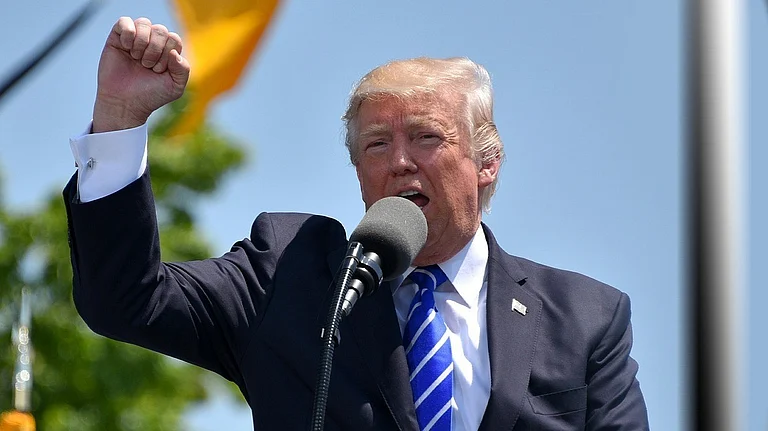India's relations with Canada hit a new low on Tuesday after the latter expelled a top Indian diplomat for alleged links to the murder of a Khalistani terrorist Hardeep Singh Nijjar. Canadian Prime Minister Justin Trudeau told country's parliament that there is "credible evidence" connecting Indian agents with the murder of Nijjar.
Foreign Minister Melanie Jolie informed that the expelled diplomat was head of Research and Analysis Wing (RAW) in the country. India's Ministry External Affairs (MEA) released a strong statement to reject the claims of the Canadian government.
The development comes after the two countries decided to pause the talks over a free trade agreement (FTA). Union Commerce Minister Piyush Goyal announced last week in an interview to First Post. Canada had also cancelled a trade mission scheduled to arrive in October.
At the recently concluded G20 summit, Prime Minister Narendra Modi had expressed concerns about anti India activities by extremist elements in the country to Trudeau. "They are promoting secessionism and inciting violence against Indian diplomats, damaging diplomatic premises, and threatening the Indian community in Canada and their places of worship," India's statement on the meeting said.
While the relations between the two countries worsen owing to the controversy over Khalistani politics, questions have been raised about the impact on trade relations between the two countries and who stands to lose the most.
Impact on India-Canada Trade?
As per the official information available, India was Canada's 10th largest trading partner in 2022. Trade between the two countries had jumped by 25 per cent to reach $8.2 billion in last fiscal. Notably, Canada does not feature in the list of India's top 25 trading partner.
Export-Import data between the two countries showed that India exported goods worth $4.1 billion while the country imported goods worth $4.05 billion. Of the total, exports to Canada make up for 0.9 per cent while imports constitute 0.56 per cent share. While India's exports included pharmaceuticals, gems and jewellery, textiles, and machinery, it majorly imported pulses, timber, pulp and paper, and mining products from Canada.
Not only goods, India is also a major destination for Canadian pension funds who invested $45 billion by the end of 2022 in India. Moreover, a Confederation of Indian Industry (CII) report said that Indian companies invested $4.92 billion in the north American country which helped in creating over 17,000 jobs.
As the ties between the two worsen, the talks to facilitate smoother trade between the two countries have been affected. Negotiations over Comprehensive Economic Partnership Agreement (CEPA) had first began 13 years ago but never fully materialised. However, under the current regime, the talks over the full fledged free trade agreement had resumed last year.
As per reports, India was negotiating an Indo-Canada Early Progress Trade Agreement (EPTA) and nine rounds of negotiations were held till July. With the sour relations impacting the negotiations, some have also wondered about its impact on the sizeable Indian diaspora in Canada.
Will It Affect Indian Diaspora?
Apart from trade, the Indian diaspora in Canada also has a sizable population. According to official estimates, over 1.2 million persons of Indian origin live in Canada, comprising over 3 per cent of country's population.
Canadian universities are also a major destination for Indian students. Over 3,20,000 Indian students were present in the country at the end of 2022, constituting 40 per cent of total international students. Canadian Bureau for International Education estimate suggests that Indian students contributed over $4.9 billion in Canadian economy in 2021.
Immigration, Refugees and Citizenship Canada data showed that number of Indians who became permanent residents rose 260 per cent between 2013 and 2022.
As the relations between the two countries worsen, it remains to be seen how the trade and growth of Indian diaspora evolves in the coming days.
































